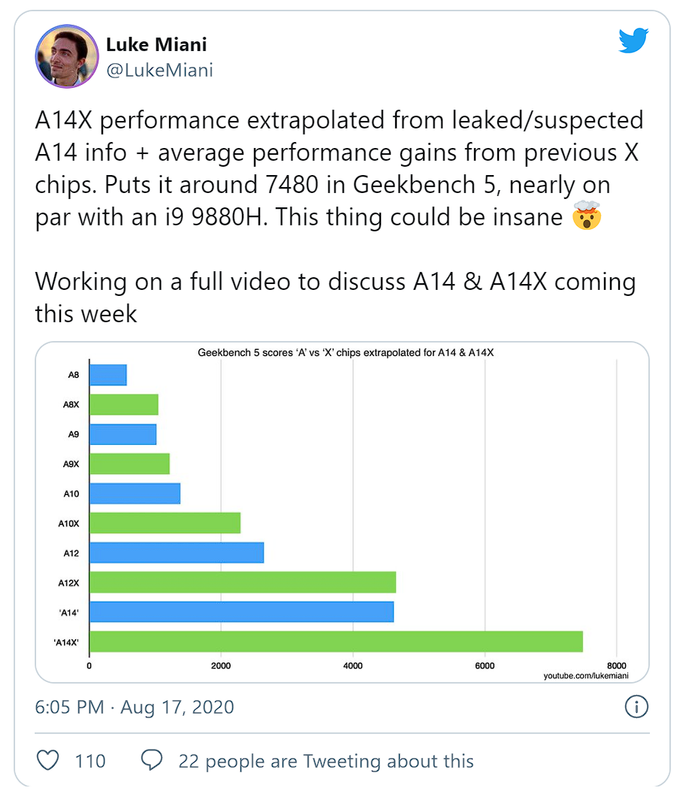I don’t agree that Apple is trend setter in computing world. In design and mobile devices may be. Apple computers (not their iPhones, watch etc) are much small sale volumes than x86 based PCs.
They’re small, but they’re trend makers. That’s the thing, they’re always the first people to do X, and others will do the same pretty soon. Modern laptops are following the trend that Apple set with their MacBook lines in late 2000s and early 2010s for example.
I also know plenty people buy macs and run windows on them due to it being transferable in X86. Dunno why they just don’t get PCs but I guess they like the symbolism.
days of doing that are unnerved.
I also doubt that ARM can be 3x faster than x86 based CPU in the next year. ARM based cpu excelled at certain tasks but it need graphics accelerators and other components to make the machine fully functional. Especially anything graphically demanding like games, the whole package drains battery pretty fast. My iPhone has 3AH battery that will disappear under 1hr if I play games on it solidly. Latest AMD u series mobile chips are pretty amazing stuff. For a 25w and 45w chip they can do a heck a lot. I am not so sure there is an equivalent ARM chip out there can do the same on the same power profile. Remembering that these mobile chips got iGPUs.
I didn’t say 3x faster. I said 3x better
performance per watt. i.e. same performance at a third of the power. That’s where they are compared to the current Intel offering. AMD is slightly better than Intel, but the scale is different in orders of magnitude when it comes to ARM. They can 100% do the same things on much lower power profiles, this is already incredibly well documented for various ARM chips in Linux, etc...
I am not concerned about a pure ARM cpu taking over the world. I think intel’s big-small architecture has much more mileage where they can technically put a few hugely power efficient reduced instruction set cores with the more complex cores to drive efficiency.
Neither am I. x86 will be around, but it has serious competitors now. You don’t need ARM to take over the world (it already has) for x86 to face competition. You only need it to be competitive, and it is competitive.
what I am trying to say is that ARM by itself won’t take over but a hybrid chip will be a game changer.
Hybrid multi-arch ARM-x86 chip isn’t happening (there’s no point hardware decoding two ISAs in one chip). But all AMD processors have ARM cores in them for example, doing specific tasks.
then you probably have lots of market segmentation where ARM based CPUs are like those “netbooks” from 10yrs old. Low power slowish things. Then the hybrids for everything from low end to ultra thin stuff and some premium laptops. Then the full fat gaming Laptops and workstation laptops
At the beginning, sure. First non-Apple ARM laptop won’t be a Dell Precision. Eventually, that gap will close down and ARM chips will find themselves in higher end models.
I also can’t see those ARm based chips making their way to the PCs or the DIY market. From OEM perspective to provide support for diverging hardware is a pain in the back side. This is why Apple is doing ARM cos it stream line their support, design, and software. But for PC OEMs it is completely the opposite.
Why not? I mean, not for gamers but for other people? It already is a non-trivial market. In fact gaming system building is a small part of the DIY market.
It is ok for data centres as they have to invest in hardware and each generation of hardware that becomes obsolete, next generation that replaces it will attract a certain amount of support and learning curve. So for them the offset of long term running cost would be significant. And when they are running arm based servers, these instances can be provided or designed to cater for very specific needs like number crunching. So there are (dare say) niche market for these. At individual computer level I just can’t see it happening.
You probably have a lot more ARM processors in your home than x86. They’ve become over 100x faster in terms of IPC in the last 15 years (x86 had 4-5x IPC improvements in the same period), and over 1000x faster in pure terms. There still is a gap between them and x86, closing down very fast, but they’re going to become performance competitive in
every single way, at lower power profiles, within a few generations, unless x86 begins improving at the same rate (which they’re not, not even in the case of AMD).




